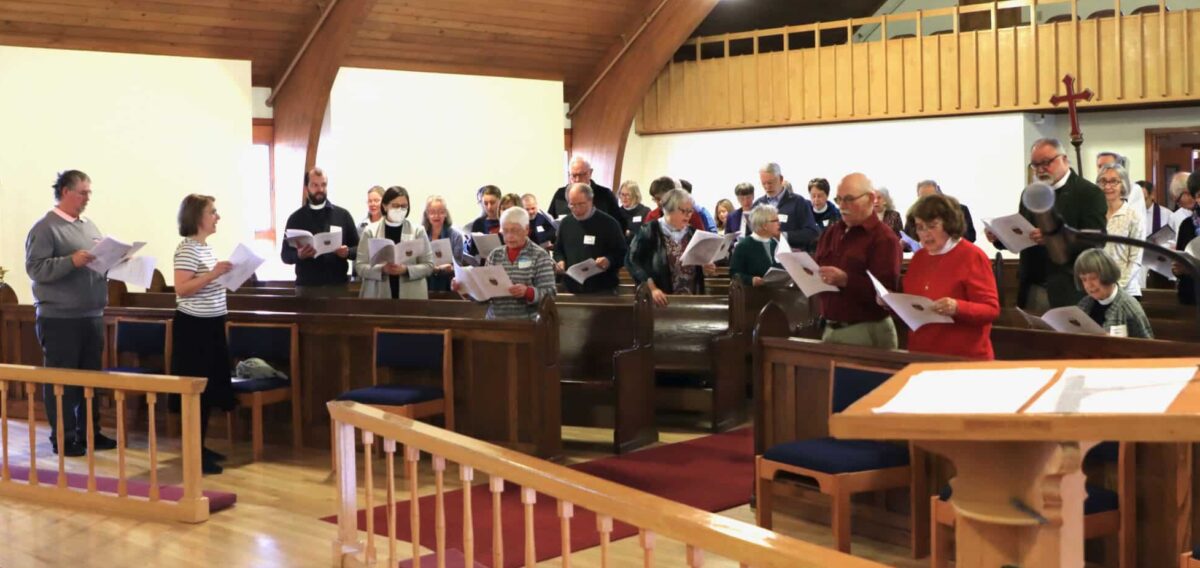
About Episcopal Maine
Who We Are
We are more than 10,000 people in 57 churches and ministries across Maine.
The Diocese of Maine—formed in 1820 when the State of Maine achieved statehood by bidding farewell to the Commonwealth of Massachusetts—is comprised of 57 congregations, 17 summer chapels, and other ministries spread across the state. The geography of the state which ranges from coastline to mountains, from potato fields to blueberry barrens, typifies the variety of the diocese, making it difficult to define in simple terms. It also indicates the geographical breadth of a place where the bishop drives roughly 35,000 miles per year!
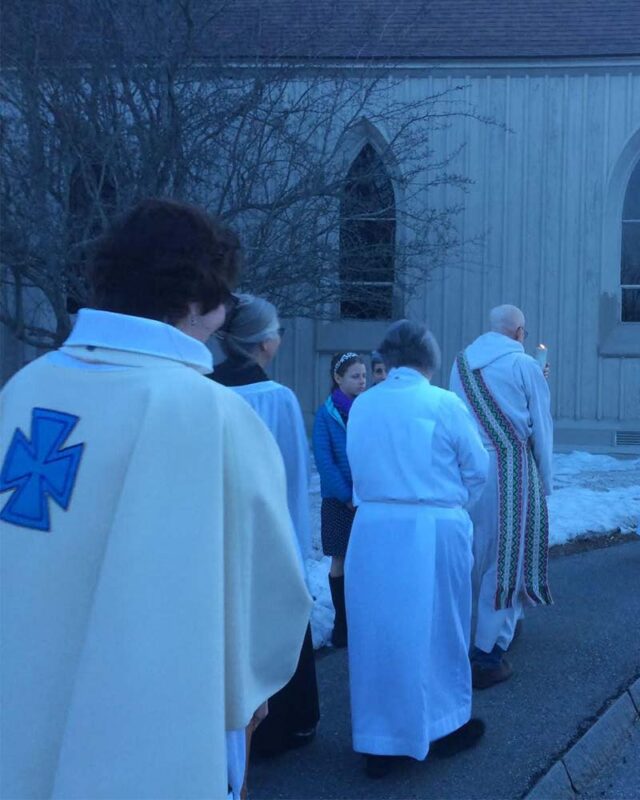
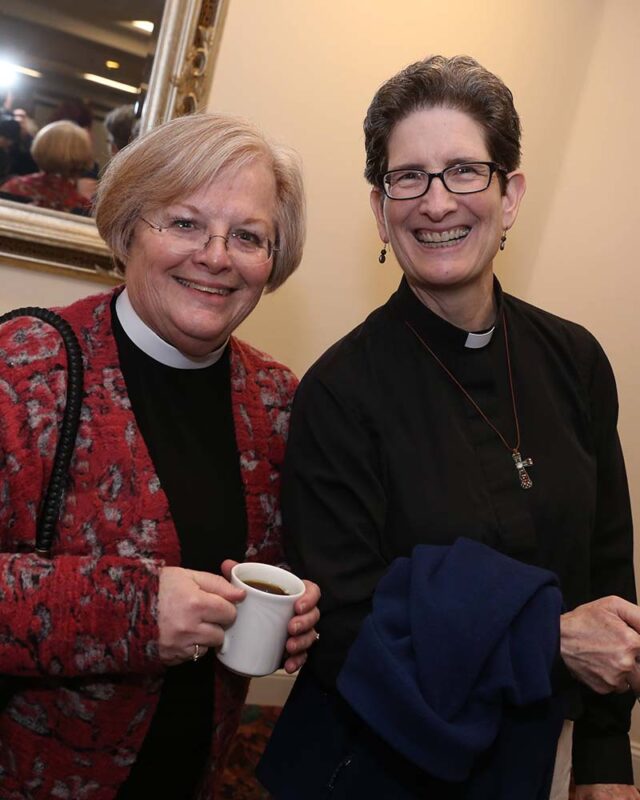
We are independent.
We are good at making things last and thinking creatively about how to repurpose something that has outlived its original intent. This creative and independent spirit serves us well as we consider fresh ways to be the church in a rapidly changing world. We are committed to our congregations and remain open to new ideas about how to be the Church in new ways.
We are diverse.
While we lack racial diversity, apart from our cities, there is no shortage of differences among us. Depending on the region one calls home and the fragility of the local economy, our congregations can differ greatly in income. Although as a diocese we tend to lean progressive in our theology, we are balanced by some parishes and clergy who hold more traditional views. Liturgically, this can be seen as some parishes use experimental worship with permission, while others deeply love Rite I and the rich tradition. Our evolving identity includes deeper ecumenical collaborations as well as a blending of Episcopal and Lutheran worship in some of our communities. We value this diversity and the ability to hold our differences in tension while remaining part of Christ’s body, the Church.
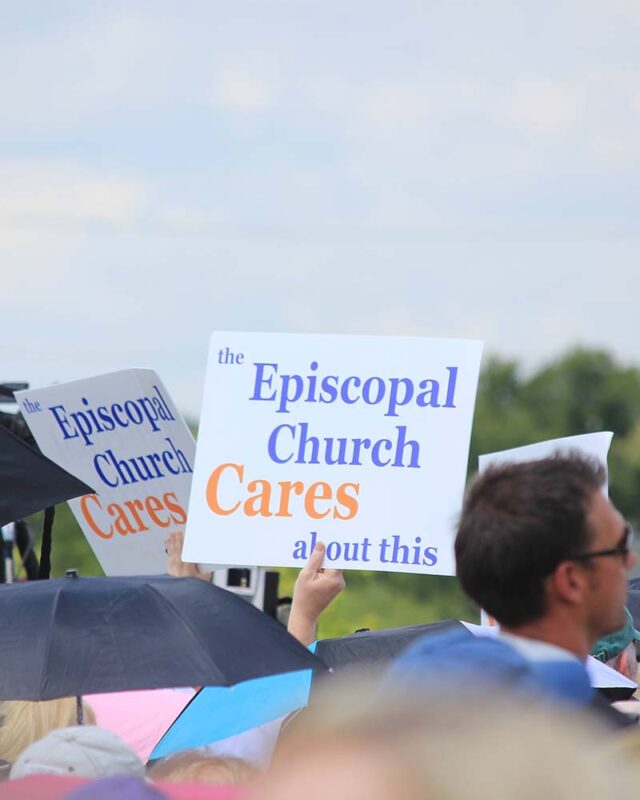
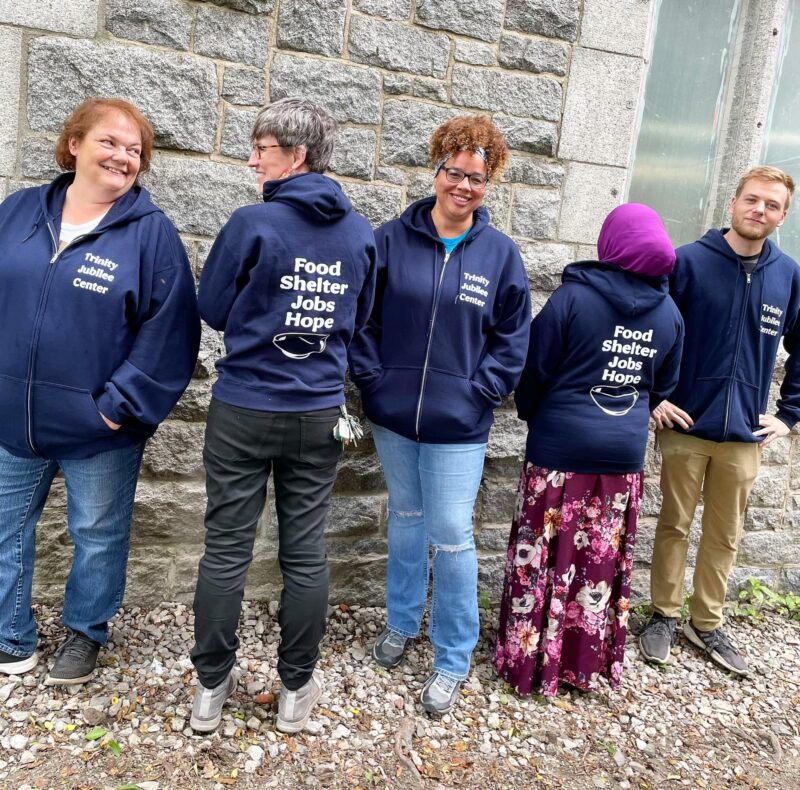
We are focused on outreach and committed to our neighbors.
For centuries, part of the “Maine spirit” has been to look out for one another. That is especially true in the local church. Nearly every parish has multiple outreach programs to reach out to their neighbors in need. Our churches and bishop acknowledge that if new people are not coming through the church doors, then the church must go out into the community.
Our three Jubilee Centers, located in Portland, Lewiston, and Biddeford, and a comprehensive ministry center in Augusta, serve low-income people and refugees and asylum seekers by offering hospitality and friendship as well as food, household essentials, clothing, translation services, and employment assistance.
What We Do
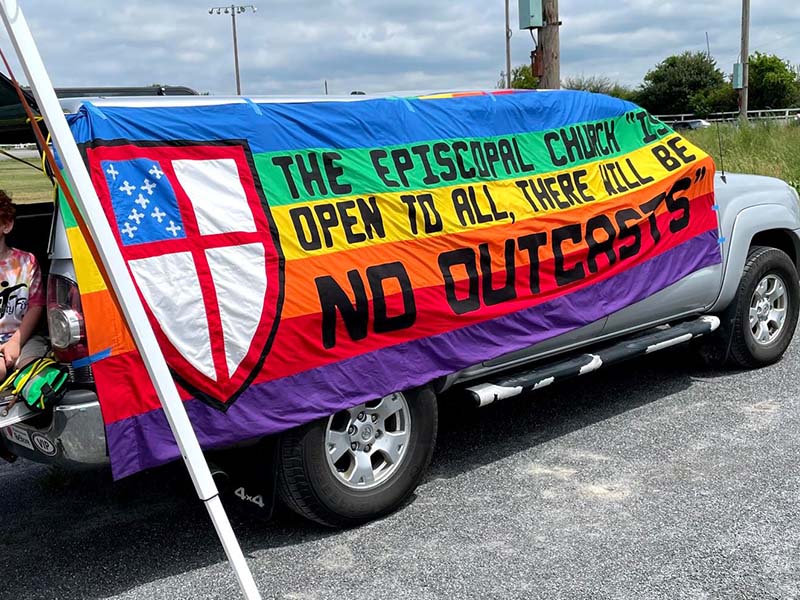
We welcome.
We are viewed as a denomination where one is welcomed and affirmed regardless of sexual orientation or religious upbringing. We are welcoming to the LGBTQIA+ community. Maine parishes strive to be open and affirming to all of God’s children, regardless of age, race, gender, or orientation. We try hard to make visitors feel at home even if our liturgy may be unfamiliar. Congregations have experienced most of their newcomers coming from different religious traditions – from Catholic to Congregational to those who have not attended church in the past.

We communicate.
The Dio Log was one of the first diocesan email newsletters in the Episcopal Church, published twice a month from May 1999 to December 2024; it has since been published monthly. Sent to more than 3,000 people across the diocese and beyond, it shares upcoming events, news, links, and messages from the bishop. In addition, the diocese has a robust social media presence on Facebook, Instagram, and YouTube. The diocese makes robust use of videoconferencing technology such as Zoom to meet in small and large groups without having to travel.
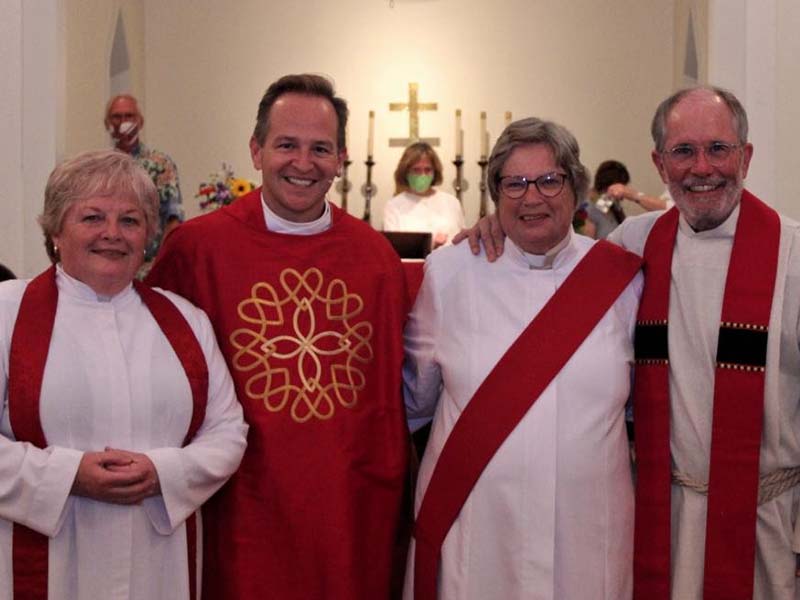
We gather.
Despite the challenges of geography, clergy and laypeople gather for diocesan events on a regular basis. Diocesan meetings and events are held in a variety of locations to make driving time more equitable and expose people to the full breadth of the diocese. Annual Diocesan Convention has been downsized from two days to one to encourage delegate diversity by limiting the time and travel commitment required to attend. The diocese offers education on a wide variety of topics throughout the year that also serve as networking opportunities for laity and clergy.
Our Cathedral
The Cathedral of St. Luke is located in downtown Portland and shares the campus and a close sense of community with the diocesan offices at Loring House. The Cathedral often hosts diocesan events such as ordinations, youth events, and diocesan liturgies.
Leadership Role in the Wider Church
Maine’s representatives to the General Convention and on various interim bodies have provided a strong voice and prophetic vision in the various conversations and efforts of the wider Episcopal Church including advocacy for restorative justice practices, civil dialogue in public life, full inclusion of racial and sexual minorities, the rights of Indigenous Peoples, and the role of alcohol and addiction in the culture of our denomination.